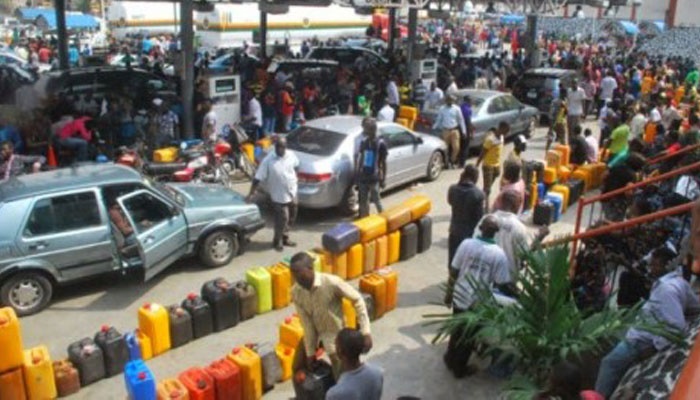“While we cannot confirm or dispute the NNPC’s claims of having sufficient product stock, we can confirm that the products are not in our tanks and as such cannot be distributed”
As far as the fuel crisis is concerned, the worst may not be over yet.
The queues may be getting longer as oil marketers under the aegis of the Depot and Petroleum Products Marketers Association, DAPPMA said they no longer have fuel in their tanks.
DAPPMA said its members had not received petrol in their depots despite the recent announcement by the Nigerian National Petroleum Corporation, NNPC that it had started offloading products in depots across the country.
Also Read: NNPC, DPR Uncover Illegal Fuel Reservoirs In Abuja
Many filling stations, particularly those run by independent oil marketers in Lagos and Abuja, were closed on Tuesday, while queues of motorists and other petrol seekers persisted in front of the few stations that dispensed the product in the Federal Capital Territory and other near-by states.
The Executive Secretary, DAPPMA, Olufemi Adewole, said in a statement that “while we cannot confirm or dispute the NNPC’s claims of having sufficient product stock, we can confirm that the products are not in our tanks and as such cannot be distributed.
“If the products are offshore, then surely, they cannot be considered to be available to Nigerians.”
Read More: Osinbajo Insists There Is No Plan To Hike Fuel Price
Adewole stated that DAPPMA members are ready to undertake 24-hour loading and truck-out if petrol is provided.
“The NNPC imports and distributes through DAPPMA, Major Oil Marketers Association of Nigeria and Independent Petroleum Marketers Association of Nigeria. Our members pay the PPMC/NNPC in advance for petroleum products, and fully paid up PMS orders that have neither been programmed nor loaded are in excess of 500,000 metric tonnes, about 800 million litres as of today, and enough to meet the nation’s needs for 19 days at a daily estimated consumption of 35 million litres,” he said.








Leave a Comment
You must be logged in to post a comment.